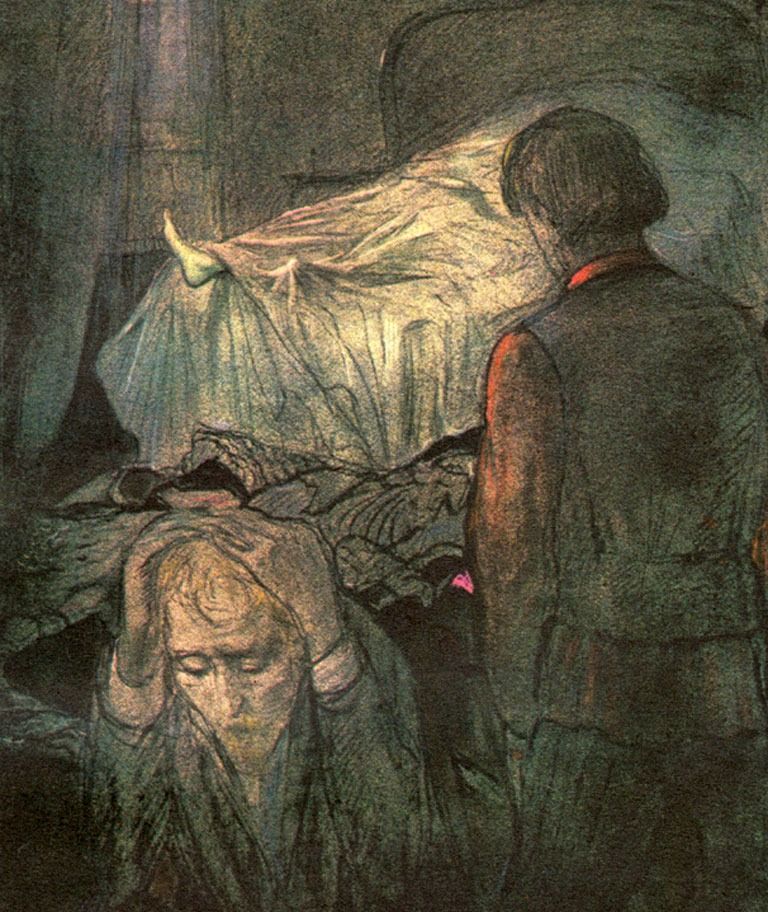I don’t think that quotation means what we think it means.
Beauty will not save the world and anyway Dostoevsky didn’t say it and anyways he didn’t mean it neither. The line that’s led to our clichéd abuse of the idea’s akin to ‘Eskimos have 418 words for snow’ and ‘it takes 21 days to form a habit’ — tho to be fair … t’other day I saw something that said it [now?] takes 62 days.
You heard it here first.
+
FD never says it. Not even the guy in The Idiot another guy accuses of saying it necessarily said it. Hippolite, in the drawing room scene attended by most all those on the holiday sojourn, says something sorta kinda like this —
‘And did not Myshkin say that beauty will save the world? … ’
or
‘The prince says the world will be saved by beauty … ’
In addition, as the oft-quoted line in Job —
‘Though he slay me, yet will I trust him … ’
— is followed by the nearly never-quoted —
‘Yet I will argue my ways to his face … ’
[and both are in the same verse for Pete’s sake!]
Hippolite follows his notioning quickly with —
‘And I maintain the reason he has such playful ideas is that he is in love. … ’
— a jesting gibe nearer to sarcasm than awe. Hippolite is funnin’ on that goof Myshkin, a bent brandished by nearly everybody in the book and easily the most freshman comp thing to notice in it.
Finally, for those who know ‘the rest of the story’ beauty does not save anyone or anything, let alone the world entire. Alone, as Michael O’Brien argues, it cannot.
+
Beauty will not save the world — unless it means more, or other than we think it means.
Which cd be.
Argued once how-why-that the Crucifixion was beautiful — believe it still. And there is DB Hart’s idea that beauty’s the best arg ever. And along with goodness and truth, yeah … and roundaboutishly, OK.
But not like we say.
So what does?
Or will —
+
— or might?
Beauty and …
O’Brien says beauty alone cannot. But he notes Dostoevsky spoke of suffering as possibly such a [re]source — and often. Sonya, in Crime and Punishment, tells Raskolnikov, ‘Accept suffering and achieve atonement through it — that is what you must do.’
Fortunately for us, suffering’s everywhere.
Nick Cave says suffering, ‘flows through life like water’ — like the Seine or the poor, we’ll always have it. John Walton and Tremper Longman III helpfully add that no matter how much we suffer, ‘there are always those who are suffering more.’
But be of good cheer! We are in the same position as the guy in that story of how do you tell the optimist? Ringed by shining lupine eyes, razoring angry teeth, throaty hungry growls, we see suffering, our own or another’s, and can leap inside for joy: ‘We’re rich!’
+
Cross, crown; pain, gain. [Yeah, ’tis. Sorry.]
But as we [mis]use the [non]-quote?
Beauty will not save the world.
Image: illustration
by Ilya Glazunov
